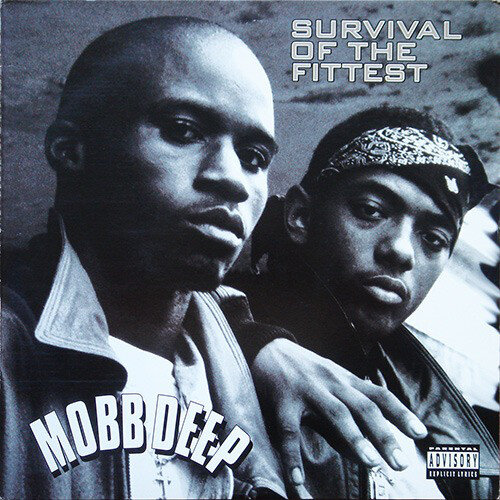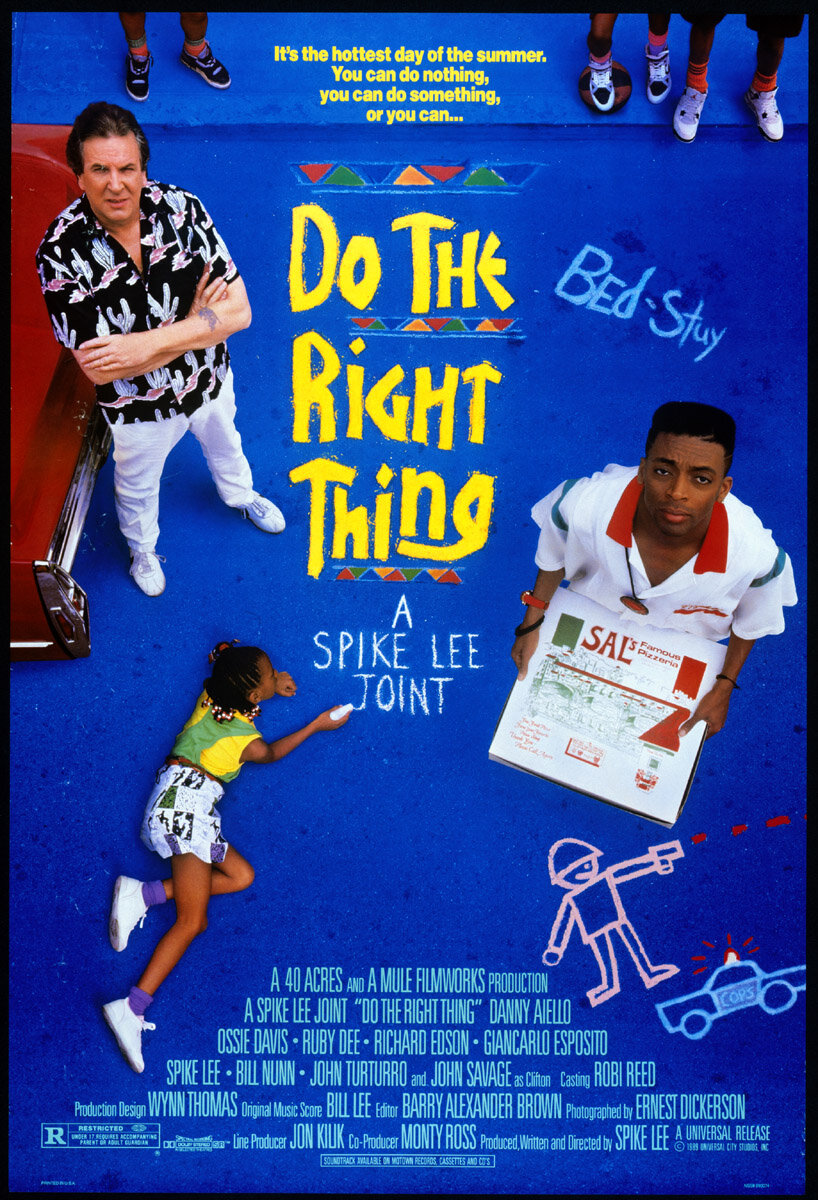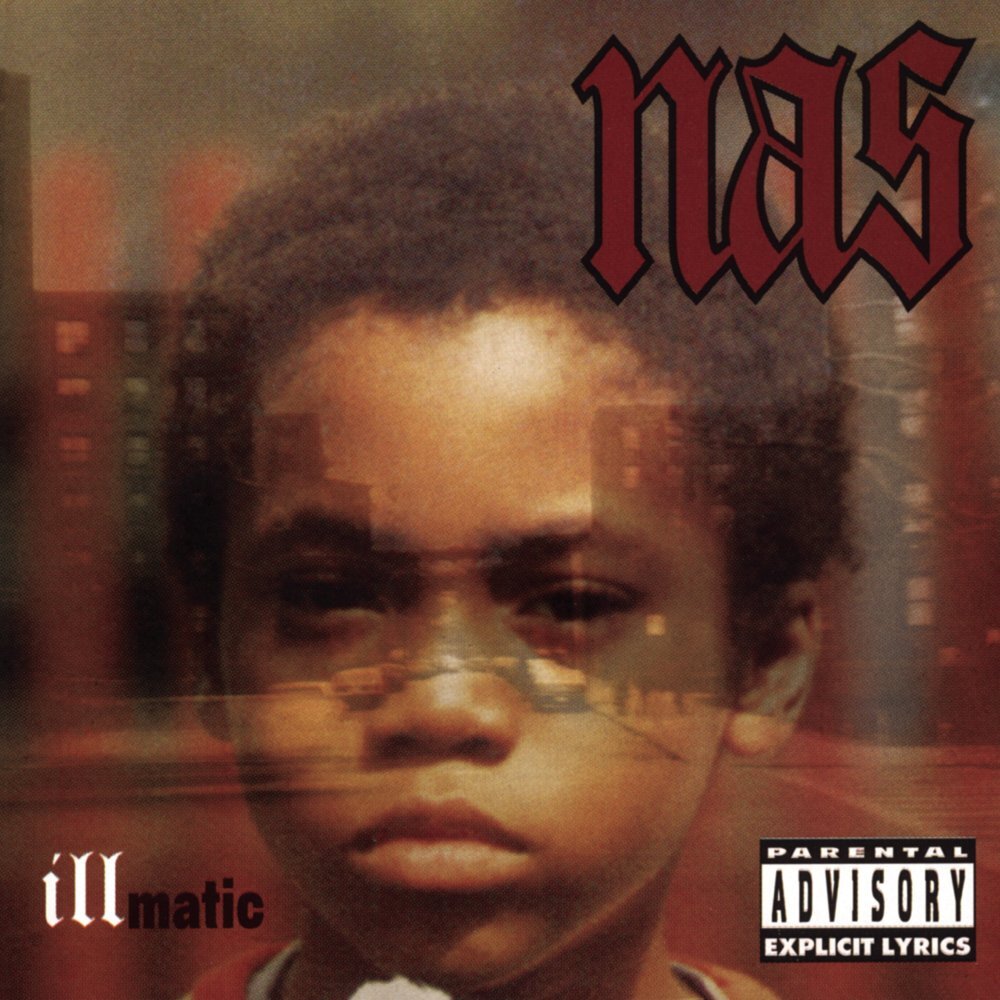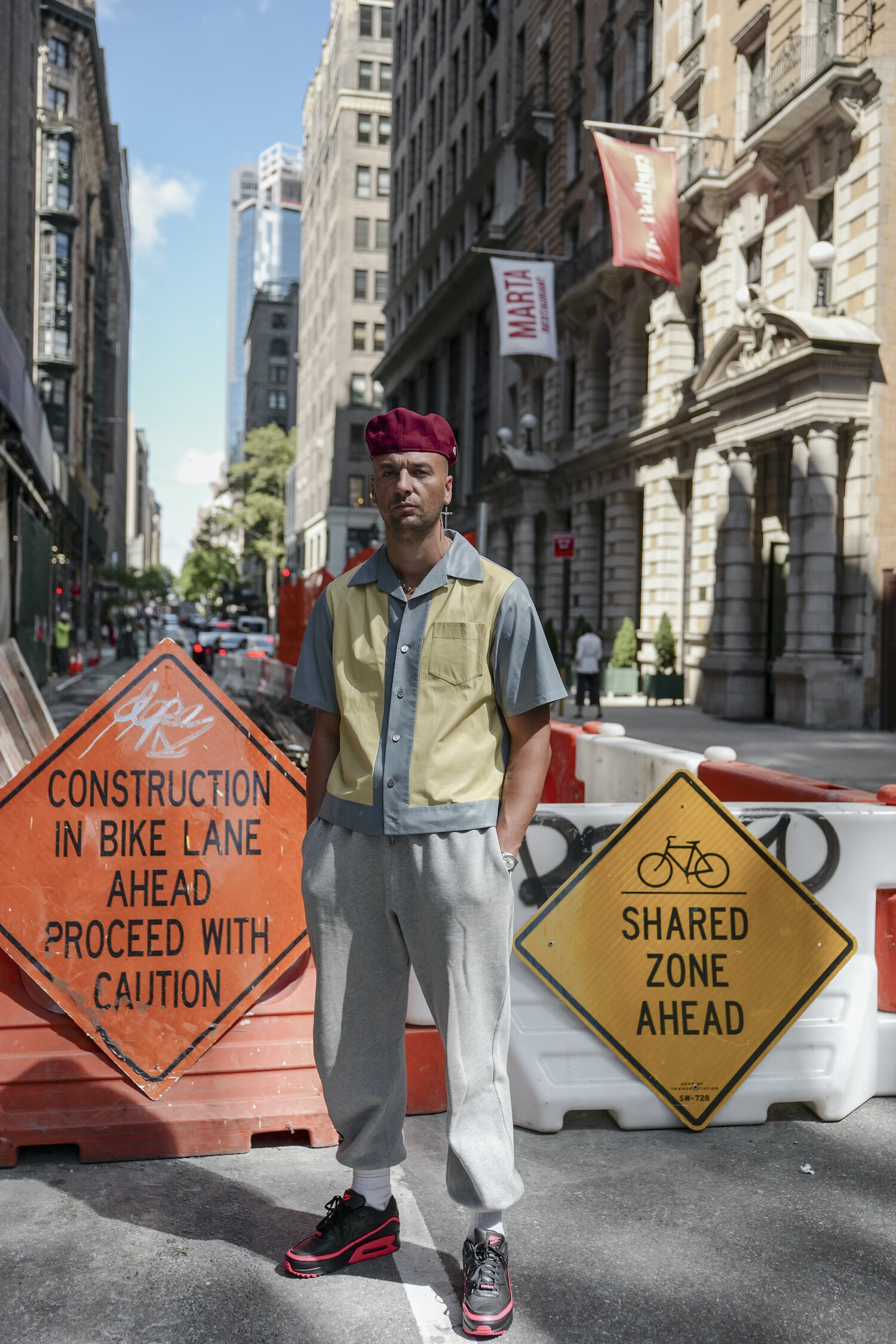Bleu Mode, a NY Hustle
“To me, hustling is a mindset, almost a lifestyle… It can be interpreted in different ways, of course, plus in French I don’t think we can even translate it properly, and that’s why I like this word. I’ve always been in this state of mind, and I think I will always be.” Raised in Sète, in the South of France, Julien Boudet has found his destiny in the streets of New York City. Fashion. Art. Photography. And hard work, obviously. Under his alias Bleu Mode, he’s now a rising star.
All photos by Julien Boudet
NOUVEAU YORK: It seemed you took the best of 2020: working from home, staying fit and inspired, even working on your own art show ‘Tout Est Bleu’, which opened last January in Brussels. Could you describe your state of mind through last year?
JULIEN BOUDET: I was a bit worried in the beginning because I wasn’t sure how long this was going to last, therefore I had to figure whether or not I had to reorganize my life in order to get through this in the best way possible. Once I realized we were in this situation for a while, I made some important decisions, so that I could keep moving forward even with the Covid-19 crisis. I was in Paris for work when it happened and I couldn’t get back to NYC because of the travel ban. I had to reorganize my workflow and I moved out of my apartment in NYC in July… I quickly figured that I had to look at this from the positive side, having more time for myself and no traveling at all. Thus, I decided to finally take the time to work on personal projects I had in mind for many years, but never had the time to do. This is pretty much how I came up with the show that I had in January, and it was clearly a success. I’m super happy about this. Basically, I did my best to remain active during this whole time. That’s obviously the best way to remain productive and not being so depressed about the pandemic.
NY: You said at that time: “Thank god, I am not stuck in Paris or NYC at the moment!”
JB: I only said that because I was lucky enough to be in a very nice and peaceful environment for the lockdown. I was actually switching in between Brussels and Luxembourg, but did most of the first confinement in Luxembourg, at a friend’s house, which is surrounded by nature. I was going outside every single day, shooting personal work and playing basketball or running, always doing some activities outdoors. For me, it’s nearly impossible to stay indoors for such a long time. I’d go crazy after 48 hours, literally. Therefore, I talked about NYC and Paris because I was happy not to be stuck in such big cities, where the police are super strict and where you could not go outside at all.
NY: Do you still consider yourself a New Yorker even after moving out of the city?
JB: Of course. New York City is part of who I am today. That’s where everything started for me, and I spent 11 years there. It’s not totally over though, let’s see when I can travel back there and maybe get a place back in the city. Who knows what’s going to happen next, the future is so blurry with this crisis.
Bleu Mode Chinatown
“New York was like a rebirth, being exposed to so many cultures and languages; it felt very refreshing.”
NY: Could you describe your fantasy of New York, before you visited the city for the first time? You picked the movie ‘Do The Right Thing’ and the biography ‘Malcom X’ in your NY selection. Did they have an impact on that fantasy?
JB: I didn’t really know what to expect when I moved there. ‘Do The Right Thing’ and ‘Malcolm X’ did not really have an impact on that fantasy, first because I didn’t really have a fantasy at all, plus these facts are part of the history of the city. I was more interested by those facts as history and their impact on the “current” New York than in the city itself. I knew it was the city of the hip hop culture, and this was super attractive to me, actually more than anything else.
NY: You moved to New York in 2008 after graduating from business school and went on to study photography at Parsons in 2011. You said "New York opened my mind and I discovered my two passions (fashion and photography) at the same time”. How did that happen?
JB: I am not sure how it happened, I just did what I thought made the most sense to me and I ended up being immersed in this world of photography, fashion and art. I believe in destiny and it’s obvious that it was written somewhere!
NY: How did NYC open your mind?
JB: By showing me and teaching me a lot of things I did not know even existed; for instance, it showed me jobs that I could possibly do and I would never imagine people could make a living of this, jobs I never knew were actual jobs… I quickly realized that anything was possible in the city, and this inspired me a lot. Coming from a town by the sea, where there is a high unemployment rate and where most people end up fishermen or work at the bank for the most “lucky” of us, I had no desire nor motivation at all to do any of this. Also, on a personal side, I met people from all around the world, and I rapidly made friends that were from countries I didn’t even know existed before. To me it was like a rebirth, being exposed to so many cultures and languages; it felt very refreshing.
NY: How did you feel when walking in NY streets for the first time?
JB: Right away I could feel its unique energy, I knew it was the perfect place for me to find myself and grow into what I am today.
Bleu Mode 9/11
“I come from a place where people tend to make fun of anything that’s different or anything they don’t understand.”
NY: You told Whitewall that you discovered street style when you were shot yourself by NY photographer and artist Dapper Lou, back in 2010.
JB: I was walking around SoHo and all of a sudden he approached me, asking if he could take my photo. I was a bit surprised because this was the first time this happened to me, and I did not really understand why he wanted to shoot me. But I did not really care anyway, so I let him do it. When I got home that day I went online to check his blog, I saw my images on there and that’s pretty much when I found out street style existed – again a new discovery. I became friends with Lou and he is actually the first person I ever shot, months later, when I decided to get into photography and build my portfolio. All this happened really organically, and that’s my favorite part about my career.
NY: Another first step to become a photographer in NYC has to do with your mother. You said “Since the day I picked up a camera in NYC to send pictures of my new city to my mom until now, it’s always been natural.” Do you remember what those first photos were?
JB: I do remember a few images, they were super basic and “cliché” when I think about it. But it was the beginning of Bleu Mode in a way, so it’s all good. We all have to start somewhere!
NY: You said about New Yorkers: “To me, the most interesting city in terms of style remains New York because people here don’t care about judgement.” Do you care?
JB: I feel like in New York people are pretty open minded, so it was very shocking to me when I arrived. I come from a place where people are the opposite, and where people tend to make fun of anything that’s different or anything they don’t understand. After a few years, when I came back to my hometown, some friends tried to make fun of my new style but then they eventually fully accepted that I was doing my own thing and that I had evolved through the influence of NYC, so they respected that. I don’t care about judgement anymore, but when I was younger I used to care a lot, in high school for instance. I wasn’t confident enough I guess.





Julien Picks 5 of his New York Classics
“That’s pretty much the message: take risks and figure out how to get where you want to be, step by step.”
NY: What is the most important thing that you learned at Parsons?
JB: To take advantage of the school facilities as much as possible because the teachers can only help you up to a certain level; you have to do the work on your own, work on yourself and study a lot outside of class. That’s what matters in the end. Once you feel like you are ready, you can just drop out and enter the jungle, where only the strong survive. I feel like school is just a launching pad, but you have to learn how to fly yourself or you will crash right after and never take off. Therefore, it’s better to start doing this while you’re still taking classes.
NY: There is a lot of hustling in your NY music selection. I guess there was some hustling for you, especially when you started as a photographer. Do you still feel that street pressure or is it something behind you?
JB: Yes, definitely, to me hustling is a mindset, almost a lifestyle… It can be interpreted in different ways, of course, plus in French I don’t think we can even translate it properly, and that’s why I like this word. I’ve always been in this state of mind, and I think I will always be. That’s one of the things that also attracted me in hip hop in general, whether it’s French or US, there was always a lot of motivation and strong messages regarding this mindset – pushing someone who is facing some issues, helping him keep his head up, never giving up. This message can be universal and inspiring for everybody, no matter your background nor where you came from.
NY: How did that message translate for you?
JB: You can start from nothing and become someone in an industry that was not meant to be yours initially. For instance, my grandfather was a docker on the port in my hometown, my father was working there too, thus I was supposed to be a docker as well; yet I decided to leave everything and do my thing, to break the rules. That’s pretty much the message: take risks and figure out how to get where you want to be, step by step. It reminds me of that song from Rick Ross: “Everyday I’m hustlin'”. Since I didn’t move to NY with 500,000 USD on my bank account, nor I did not have a Social Security Number (I could not work legally), I had to hustle once I got there to make enough money every month to pay the bills AND also hustle to get my artist visa – it took me 4 years to get my work visa, thus finally being allowed to work.
NY: Can you tell us about your love for [French philosopher] Roland Barthes?
JB: Well, I read a lot of his books when I was at Parsons. Camera Lucida is a major book on photography, it was in the program at Parsons. I loved it so I read a few other books from him.
“My Mexican co-workers in the French restaurant where I used to work in Brooklyn.”
NY: I believe your recent art show has a lot to do with Barthes’ thinking.
JB: Yes, exactly, my solo show focuses on logos that can be seen as symbols, and symbols are a huge part of Barthes’ work. In that sense, one can sense the similarities between my work and his.
NY: Your hometown of Sète in the South of France is still very important and inspirational to you. How does your love for Sète compare to your love for NYC?
JB: It’s not comparable, Sète is in my blood, where the last two generations of my family come from. NYC is the place who helped me figure out my life, who put me in the right direction, but everything that came before contributed to building the person I am today. Sète and NYC are part of who I am, however, I am 100% Sétois, it’s my roots. I love both cities for different reasons.
NY: Before we conclude, I need to ask you about that day you were gunshot in the leg in Brooklyn. What happened?
JB: Well, I happened to be in the wrong place at the wrong time... basically a guy from a gang had a fight earlier that day with a group of teenagers from another gang, so he came back with a gun and started shooting as I was walking by. One girl was shot in the throat and died on the spot, four other people including myself were wounded. I got shot in the leg, it was incredibly painful. It’s definitely an experience that I will never forget, I had to go to court two years later in Downtown Brooklyn to testify for the family of the girl and all that, it was super intense...
NY: Did that day make you a Brooklyner?
JB: I guess it made me a Brooklyner for sure, at least that’s what all my neighbors on my block were telling me when they saw me with my crutches the next day, showing me their scars from gunshots; I was finally one of them, only after 3 years living there.
NY: What does the future look like? Is Bleu Mode about to become “Le Grand Bleu Mode” [The Big Blue] or did that already happen?
JB: [Laughs] I would not say it already happened, but yes, it is on the way! I am one of these people who are never satisfied, so I’m still far from where I want to be, but at least I am moving in the right direction and that’s already a rewarding feeling.






